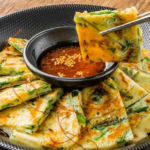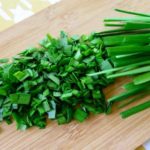Chives are a versatile herb with numerous health benefits and culinary uses. But can pregnant women eat chives? In this article, we explore the nutritional value of chives and their potential benefits and precautions for expectant mothers.
1 Nutritional Value of Chives
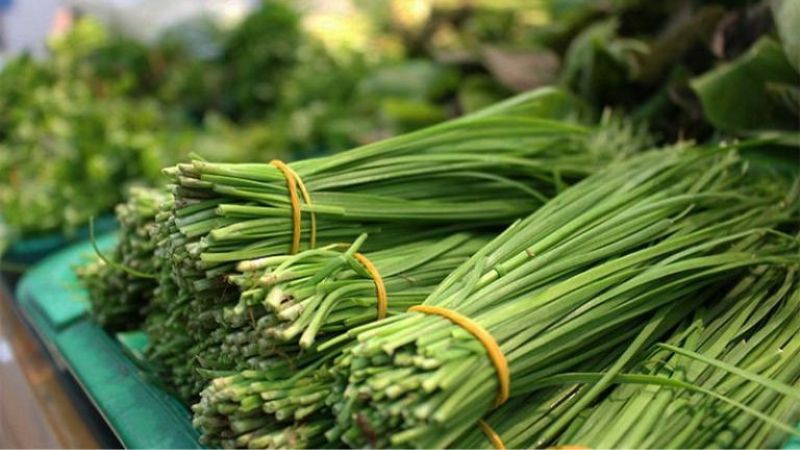 Nutritional Value of Chives
Nutritional Value of Chives
According to the United States Department of Agriculture (USDA), 100 grams of chives contain the following nutrients:
- Vitamin B6: 0.157mg
- Protein: 3.27g
- Fat: 0.73g
- Carbohydrates: 4.35g
- Fiber: 1.85g
- Phosphorus: 92mg
- Vitamin C: 1.6mg
- Calcium: 42mg
- Water: 90.6g
- Potassium: 296mg
- Vitamin B2: 0.115mg
- Vitamin A: 213µg
- Iron: 3mg
- Calories: 30kcal
- Vitamin B5: 0.56mg
- Vitamin B9: 0.373mg
- Vitamin B12: 0.9 µg
- Magnesium: 58.1mg
- Zinc: 0.078mg
- Vitamin E: 0.647mg
- Vitamin K: 105 µg
- Sodium: 5.2mg
- Selenium: 218µg
- Copper: 0.21mg
- Manganese: 0.138mg
- Sugar: 2.5g
- Vitamin B1: 2610µg
- Vitamin B3: 58mg
2 Can Pregnant Women Eat Chives?
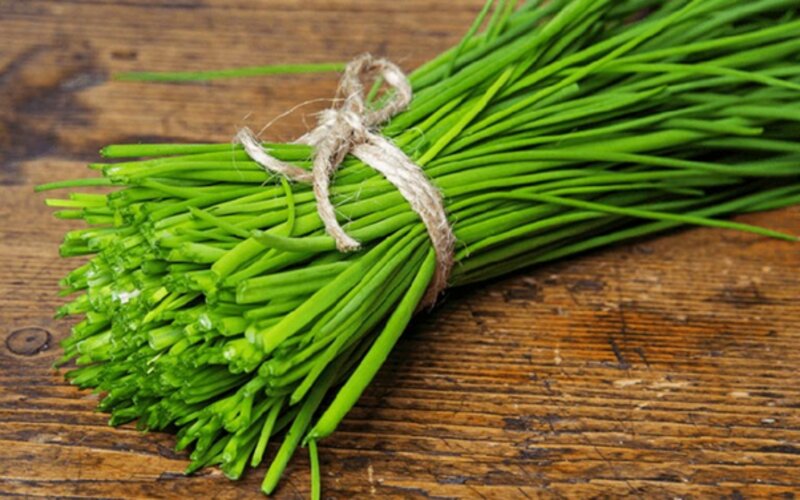 Can Pregnant Women Eat Chives?
Can Pregnant Women Eat Chives?
Chives are a nutrient-dense food, providing a good source of folate, which is essential for the development of the baby’s brain and nervous system. Folate also helps prevent neural tube defects and supports the overall health of the pregnancy.
Additionally, chives contain vitamins A, B, C, K, and E, as well as other essential minerals, which contribute to a healthy pregnancy and overall well-being.
3 Benefits of Eating Chives During Pregnancy
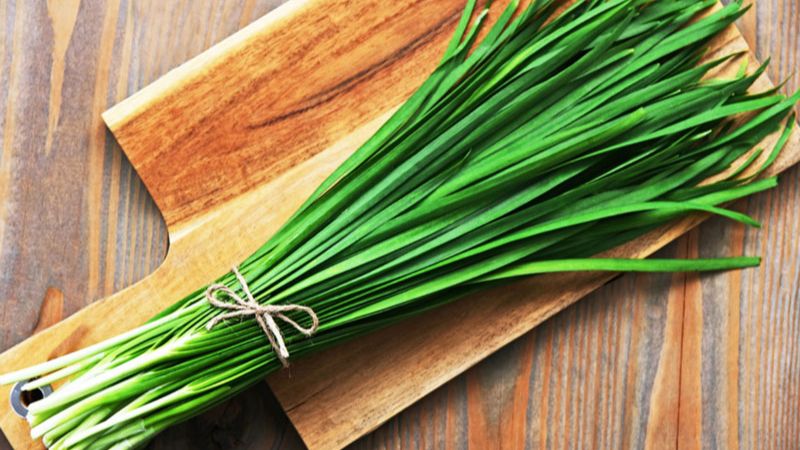 Benefits of Eating Chives During Pregnancy
Benefits of Eating Chives During Pregnancy
Modern medical research suggests that consuming chives during pregnancy can offer the following benefits:
- Stronger Bones: Chives are rich in vitamin K and calcium, which are essential for bone health and development.
- Lower Cholesterol and Blood Pressure: Eating chives can help reduce cholesterol levels and maintain healthy blood pressure during pregnancy.
- Treating Infections: Chives contain allicin, sulfit, and odorin, which have antimicrobial properties and can help treat skin infections, itching, scabies, and threadworms in children.
- Cancer Prevention: The sulfur and flavonoid content in chives have been shown to inhibit the growth of cancer cells, making them effective in cancer prevention.
In traditional Chinese medicine, chives are believed to have additional benefits, including:
- Detoxification
- Relieving back and knee pain
- Tonifying the kidneys
- Treating nocturnal emissions
- Reducing itching
- Promoting blood circulation
- Treating constipation
- Relieving abdominal pain and discomfort
- Treating the common cold
- Healing wounds
4 Is It Good to Eat Chives Every Day During Pregnancy?
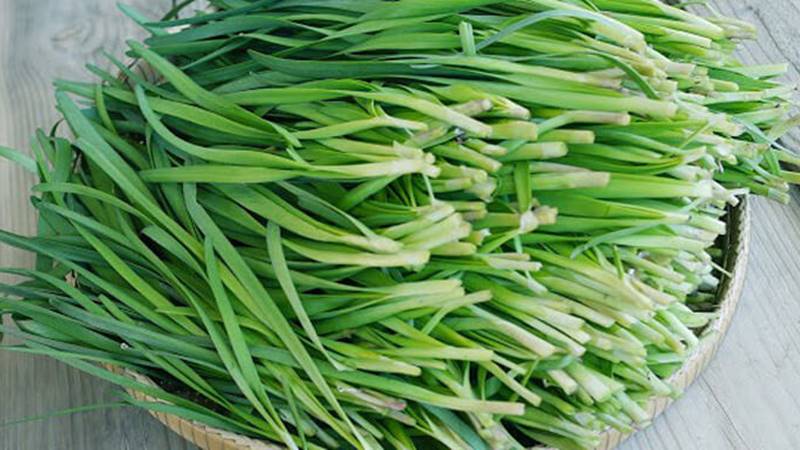 Is It Good to Eat Chives Every Day During Pregnancy?
Is It Good to Eat Chives Every Day During Pregnancy?
While chives offer many health benefits, it is not advisable to consume them daily during pregnancy. As with any food, moderation is key to maintaining a balanced diet and avoiding potential negative side effects. Excessive consumption of chives may disrupt the body’s nutritional balance and lead to adverse reactions.
5 Precautions for Pregnant Women Eating Chives
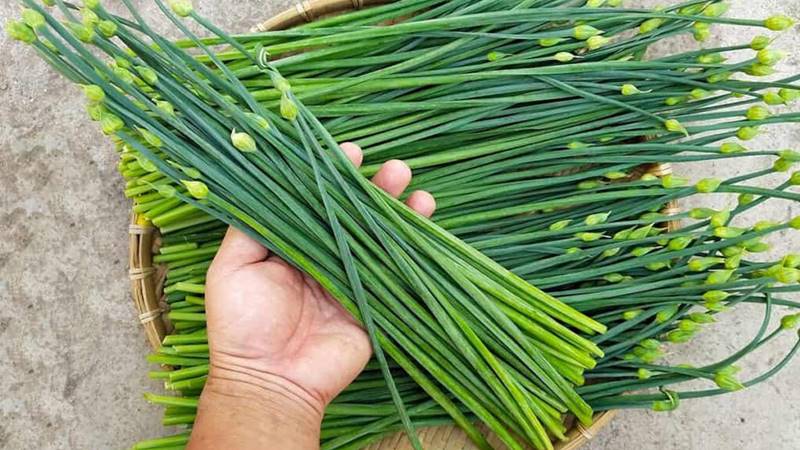 Precautions for Pregnant Women Eating Chives
Precautions for Pregnant Women Eating Chives
Pregnant women who wish to include chives in their diet should keep the following precautions in mind:
- Consult a healthcare professional before using chives to treat any medical condition during pregnancy.
- Avoid excessive consumption of chives, as it may lead to restlessness, irritability, and other adverse effects.
- Limit intake during summer to prevent any potential negative side effects associated with the heat.
- Do not consume chives with buffalo meat or mutton as these foods are considered incompatible and may cause adverse reactions.
This article has addressed the question of whether pregnant women can eat chives and provided valuable insights into the benefits and precautions of consuming this herb during pregnancy. We hope it helps you make informed decisions about your diet and supports your journey towards a healthy pregnancy.
Source: Marrybaby.vn
























